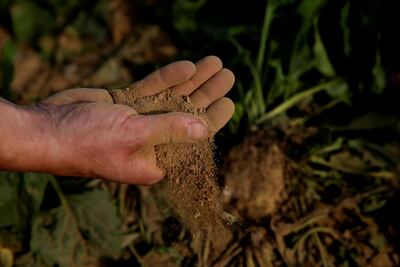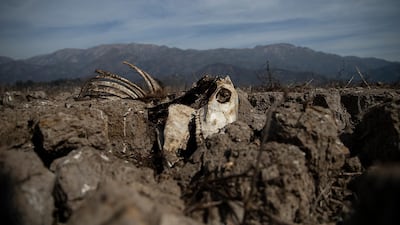Social and political tension fuelled by climate change have yet to translate into international military confrontations, but local conflicts are heating up due to pressures such as drought and water scarcity.
In fragile states, such as Yemen and South Sudan, competition for scarce natural resources is increasing, while a growing need for humanitarian aid undermines states' ability to deal with climate risks, Johan Schaar, of the Stockholm International Peace Research Institute, said on Wednesday.
"I don't see big, shooting wars but I think you will have an increasing frequency of very localised conflicts and tensions that could then escalate into much more," Mr Schaar said at World Water Week in Stockholm.
Climate-related disasters often force people from their homes, putting a strain on the communities into which they move and stirring grievances, he said.
In South Sudan, the world's newest country, climate change is shortening and delaying the rainy season, while almost 80 per cent of the rural population is affected by droughts and floods, said Alier Oka, the undersecretary at the Ministry of Water Resources and Irrigation.
"Climate change has impacted resources. Rainfall variability is the key issue," he said at the conference.
That is pushing some herders to consider moving to new areas in search of pasture and water, where they are likely to run into problems with settled farmers.
"This is common in South Sudan and happening now," Mr Oka said.

As a result, looting of cattle and tribal fighting are occurring more frequently, he said.
In Yemen, embroiled in civil war since 2015, water has become "weaponised", said Muna Luqman, chair of Food4Humanity, a local charity.
Half the population has no access to safe drinking water, which was already a scarce commodity in the arid country before the Iran-backed Houthis overran the capital Sanaa, she said.
Lawlessness combined with climate stresses such as drought and extreme heat, has worsened health and social problems with women and children worst-hit, she said.
Yemen is suffering its third major cholera outbreak since 2015.
But using water wisely can foster peace, said Ms Luqman, who has worked on projects to encourage tribes in remote areas to share water stations.
More than half the world's population is likely to live in water-scarce areas by 2050, said the Economist Intelligence Unit, which launched a "Blue Peace" index this month to better manage shared water supplies.
Elisabeth van Duin, a director at the Netherlands Ministry of Infrastructure and Water Management, warned that a lack of safe water, migration and population growth could all "destabilise societies and contribute to regional conflict".
From Syria to Lake Chad, climate change has escalated tensions, Ms van Duin said, with global hotspots in the future likely to include India and China, where millions of people are set to become victims of droughts and floods by 2050.
"Water can become a weapon in conflict," she told the conference. She said that climate and water stress would be "particularly hard on the developing world".

